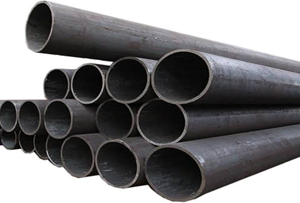Description
Key Features
- Corrosion Resistance:
- FRP pipes are highly resistant to a wide range of chemicals, including acids, alkalis, and solvents, making them ideal for corrosive environments.
- They are non-reactive to seawater, industrial effluents, and brackish water, ensuring long-term performance.
- High Strength-to-Weight Ratio:
- Despite their lightweight construction, FRP pipes offer high mechanical strength, comparable to or exceeding that of conventional materials like steel and concrete.
- Thermal and Electrical Insulation:
- Excellent thermal insulation properties reduce energy loss in fluid transport systems.
- Non-conductive properties make FRP pipes suitable for applications where electrical insulation is critical.
- Customizable Design:
- Manufactured in various diameters, lengths, and pressure ratings to suit specific project requirements.
- Can be designed for specific operational conditions, such as high-pressure or high-temperature environments.
- Low Maintenance:
- Resistant to scaling, fouling, and corrosion, FRP pipes require minimal maintenance compared to traditional materials.
- Smooth internal surfaces prevent clogging and enhance flow efficiency.
- Longevity:
- Engineered for a lifespan of over 50 years in most applications, providing a durable and cost-effective solution.
Applications
- Chemical Processing:
- Transporting corrosive chemicals, acids, and solvents in chemical plants.
- Suitable for use in scrubbers, absorbers, and chemical storage systems.
- Water and Wastewater Management:
- Used in potable water supply systems, desalination plants, and wastewater treatment facilities.
- Ideal for transporting sewage, effluents, and brine solutions.
- Oil and Gas Industry:
- Used in the transport of crude oil, natural gas, and other hydrocarbons.
- Commonly deployed in offshore platforms, refineries, and pipelines.
- Power Generation:
- Employed in cooling water systems, flue gas desulfurization (FGD) systems, and other utility applications in power plants.
- Marine and Offshore:
- Suitable for seawater intake systems, ballast systems, and other marine infrastructure due to their corrosion resistance in saline environments.
- Industrial Applications:
- Used in pulp and paper mills, fertilizer plants, and mining operations for transporting slurries and chemicals.
Specifications
- Material Composition:
- Fiberglass reinforcements (woven or chopped strands) embedded in thermosetting resins such as:
- Polyester
- Vinyl Ester
- Epoxy
- The choice of resin depends on the chemical and temperature resistance required for the application.
- Fiberglass reinforcements (woven or chopped strands) embedded in thermosetting resins such as:
- Sizes:
- Available in diameters ranging from 25 mm to 4000 mm and custom lengths to meet project requirements.
- Pressure Ratings:
- Typically designed for pressures up to 32 bar or higher, depending on the manufacturing process and intended application.
- Temperature Tolerance:
- Suitable for operating temperatures between -40°C to 120°C, with specialized grades available for higher temperatures.
- Standards and Certifications:
- Manufactured in compliance with standards such as ASTM D2996, BS 5480, and ISO 14692 to ensure quality and reliability.
Advantages
- Corrosion-Free Performance:
- Unlike metal pipes, FRP pipes do not rust or corrode, significantly reducing maintenance and replacement costs.
- Lightweight and Easy Installation:
- Lighter than metal or concrete pipes, reducing transportation and installation costs. This also facilitates installation in remote or challenging locations.
- Low Hydraulic Friction:
- The smooth internal surface minimizes friction losses, improving flow efficiency and reducing pumping costs.
- Versatility:
- Suitable for a broad range of applications across industries due to their chemical resistance, temperature tolerance, and structural strength.
- Environmentally Friendly:
- Long service life and reduced maintenance requirements contribute to sustainability. Additionally, many FRP materials are recyclable.








Reviews
There are no reviews yet.